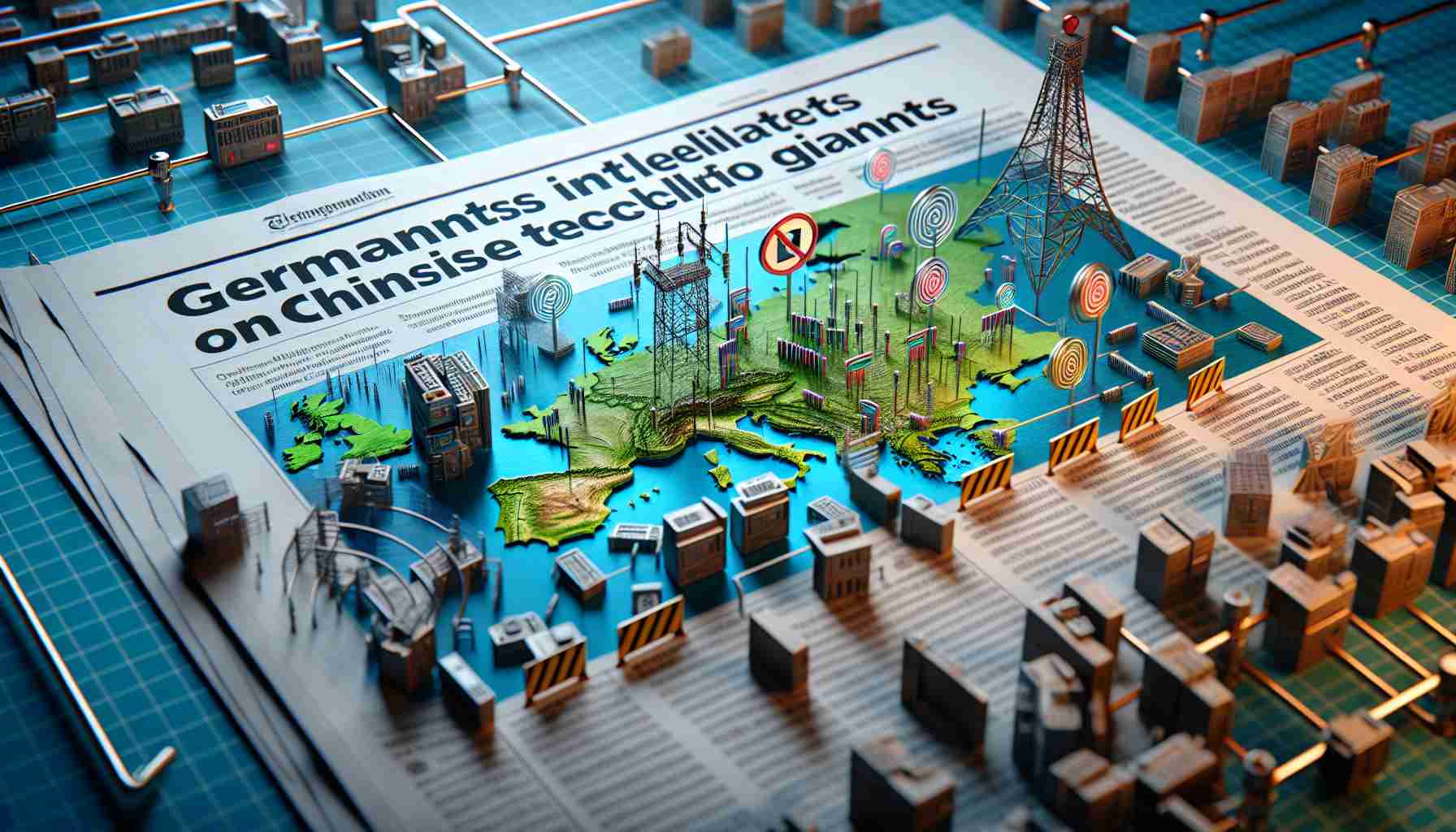Germany has announced plans to gradually eliminate the use of components sourced from Chinese telecommunications giants Huawei and ZTE in its 5G networks over the next few years, citing concerns over national security. This decision marks a significant shift in Berlin’s approach towards reducing its economic dependence on Beijing, amidst escalating warnings from the EU regarding potential risks posed by these companies.
The interior ministry in Berlin has outlined a timeline for phasing out the inclusion of Huawei and ZTE components in core 5G mobile networks by the end of 2026, with a complete replacement mandate by 2029 for access and transmission infrastructure. Interior Minister Nancy Faeser emphasized the importance of safeguarding Germany’s critical infrastructure, stressing the need to mitigate security threats and steer clear of one-sided dependencies on foreign entities.
Germany’s telecommunications networks, viewed as a vital component of the country’s functioning across various sectors such as healthcare, transportation, and energy, are identified as key targets for protection against cyberattacks that could potentially pose existential risks. Partnering with major network operators, including Deutsche Telekom, Vodafone, and Telefonica, German authorities have initiated steps to enforce the ban on Huawei and ZTE equipment.
In response to the ban, Huawei has refuted claims of cybersecurity risks associated with their technology, underscoring their commitment to offering innovative and secure solutions in the German market. However, the move by Germany reflects a broader trend in Europe and beyond, with countries increasingly adopting stringent measures to secure critical infrastructure and mitigate potential risks linked to foreign technology providers.
Germany Implements Strict Restrictions on Chinese Telecom Giants: New Developments and Insights
Germany’s decision to phase out components from Chinese telecommunications giants Huawei and ZTE in its 5G networks has raised important questions and brought to light key challenges associated with this move.
Key Questions:
1. What prompted Germany to implement such strict restrictions on Huawei and ZTE?
Germany’s decision is rooted in concerns over national security, particularly regarding potential cybersecurity risks posed by these Chinese companies.
2. What are the implications of this decision on Germany’s technological infrastructure?
The phased elimination of Huawei and ZTE components aims to safeguard critical infrastructure, including telecommunications networks that play a crucial role in sectors like healthcare, transportation, and energy.
Key Challenges and Controversies:
One of the primary challenges associated with this decision is the potential impact on the roll-out of 5G networks in Germany. The removal of Huawei and ZTE components may lead to delays and increased costs as alternative providers are sought.
Additionally, a controversy surrounding the decision lies in the debate over the extent of cybersecurity risks posed by Huawei and ZTE equipment. While Germany and other countries have expressed concerns, Huawei has consistently denied any wrongdoing and emphasized its commitment to security.
Advantages and Disadvantages:
Advantages:
– Enhanced national security: By reducing reliance on Chinese telecom giants, Germany aims to lower the risk of potential cyber threats to its critical infrastructure.
– Strengthened relationships with allies: Germany’s decision aligns with the stance of other countries in Europe and beyond that have raised similar concerns about Huawei and ZTE.
Disadvantages:
– Technological setbacks: The phasing out of Huawei and ZTE components could lead to delays in the deployment of 5G networks and increased costs for network operators.
– Potential trade tensions: Strict restrictions on Chinese companies may strain diplomatic relations between Germany and China, impacting broader economic ties.
As Germany takes decisive steps to implement these restrictions, the global tech industry and diplomatic landscape may witness shifts and adaptations. It remains crucial for stakeholders to navigate the complex interplay between national security, technological innovation, and international relations in the evolving digital age.
For more information on global cybersecurity threats and telecom industry regulations, visit Interpol.























